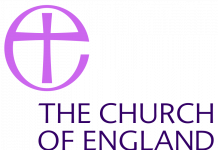Dear Parishioners, Clergy and Bishops
I greet you all in Christ’s name.
In view of the South African President’s announcement of regulations to curb the spread of the novel coronavirus in South Africa, I have consulted with as many Bishops of the Province as possible in the time available and am issuing these revised guidelines to the Province.
While it is recognised that elements of the guidelines will reflect South African regulations, they are aimed at best church practice – drawn also from the Church of England – for Dioceses in all countries of our Province. In humility we also offer them to other Provinces on the continent who may be affected by the pandemic, for use and adaptation as appropriate.
___________________________________________________________________________
As we go forward, any updates will be reflected on this page, and a quick guide to any updates will be listed here:
UPDATE: MARCH 17, 06:45
This version of the guidelines replaces all previous guidelines.
___________________________________________________________________________
In Parishes
- Services should be limited to 100 people. This will mean that many clergy will have to spend longer hours, presiding at more services, on Sundays and popular weekday services – and especially on Good Friday and Easter. We rely on the ingenuity of clergy and Parish Councils as to how you work with regular worshippers on deciding who attends what service (whether by signing up to rosters or some other method).
- Hand sanitizers should be made available for congregants arriving at and departing from services.
- Since churches will be emptier, spread yourselves out to keep distances of at least metre between you and your neighbour. I realise that “social distancing” seems a drastic, even unChristian way of behaving towards one another. But the best advice we have from coronavirus experts is that people who are infected but do not show symptoms – including young people who may never have symptoms – may be among those who spread the virus the most. Therefore, keeping physical distance from others – whether or not they have symptoms – is one of the surest ways to slowdown rates of infection.
- Suspend physical contact with one another at the Peace – don’t shake hands or embrace – instead wave hands to acknowledge the other instead.
- Develop ways of making the collection without passing around a collection plate.
- Keep your distance from others while waiting in line to receive the host.
- Do not touch the Communion rail with your hands. Where possible, stand when receiving Communion.
- Clergy must use hand sanitizer before they distribute the host/ wafers.
- Only the priest should consume the wine. This is theologically sound practice and does not invalidate the Eucharist for those who receive it.
- As you leave, wave to your clergy instead of shaking hands.
- Parishioners who are ill should stay at home to recover and request home communion or a pastoral visit.
- No pastoral visits should be undertaken to people who are self-isolating or in quarantine. However, do offer phone support.
- Ensure good regular cleaning of surfaces which people touch regularly including such things as door handles, light switches, etc.
- Ensure a good supply of soap or sanitizer in cloakrooms, kitchens etc.
- Suspend catering (tea/coffee, etc) where multiple people touch mugs, utensils and foodstuffs.
Clergy, Pastoral Workers and Lay representatives
- No meetings of more than 100 people will be held.
- Avoid travel unless there are exceptional circumstances. Hold audio or video meetings on Skype, WhatsApp, Zoom and other devices.
- Clergy should not make direct physical contact with congregants when they bless or lay hands on them. Bishops should not make physical contact when confirming or ordaining congregants.
- When visiting parishioners at home, wash hands before and after giving the sacraments.
- If you are making pastoral visits to hospitals or homes for the aged, be strict about disinfecting yourself, washing hands etc before and after your visits. Follow the advice of staff on infection control.
- Educate yourselves and your congregations on your Government’s guidelines on hygiene and follow them when not dealt with in these guidelines. For example, wash your hands frequently and don’t touch your face unless you’ve washed your hands.
- Matters such as clergy becoming ill and needing leave or sick leave to be handled at Diocesan level under the authority of the Bishop.
These guidelines do not cover every imaginable situation. I rely on you and your Parish Council’s wisdom to develop detailed steps as you face new situations — and do listen to your national and local health authorities. Shortly, I will make available for the clergy appropriate guidance which the Southern African Anglican Theological Commission is helping us develop.
I know these measures sound drastic, and they are, for good reason. We face an emergency. The world is so interconnected that we cannot avoid the virus, so we must do everything we can to educate ourselves to minimise its spread. The prospect of it spreading among the aged, people with TB and other vulnerable groups is too awful to contemplate.
Please take care of yourselves, your loved ones and everyone in your community. We can minimise the spread, but we have to take it seriously to succeed.
I pray that our common life in worship and pastoral care will be rooted in the compassion of Christ and appropriate care for one another in a time of uncertainty.
God bless you.
The Most Revd Dr Thabo Makgoba
Archbishop and Metropolitan
Anglican Church of Southern Africa










